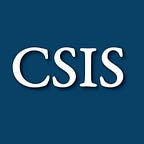May 12 Deadline May Not Settle Iran Sanctions
May 2, 2018
By: Jon Alterman
Subscribe to our daily newsletter, The Evening, a daily brief on the news, events, and people shaping the world of international affairs.
Q1: Does President Trump need to decide whether to continue to adhere to the Joint Comprehensive Plan of Action (JCPOA) with Iran on May 12?
A1: No. The president needs to decide by May 12 if he will renew a 120-day waiver of sanctions that Congress imposed on Iran in the 2012 National Defense Authorization Act and that principally pertain to transactions with the Central Bank of Iran. While the president said on January 12, 2018, that he would not renew the waiver again unless deficiencies in the JCPOA were addressed, he can renew the waiver for any period up to 120 days. He also, at his discretion and at any time, can impose additional sanctions on Iran by executive order.
Q2: What happens if he doesn’t renew the waiver?
A2: That’s unclear. Iran could turn to the dispute mechanism in the JCPOA, which provides for taking disputes first to a joint commission of signatories, then the foreign ministers of signatory countries, and finally to a three-judge advisory board. Theoretically, Iran could be freed from its obligations to comply with the JCPOA, but what Iran seems most eager to do to is secure more open trade with the world. It is hard to predict how governments would react if the United States were found to be out of compliance with the plan of action. The United Kingdom, France, and Germany have been working hard to meet the Trump administration’s objections to the JCPOA, which fall along three lines: it does nothing to constrain Iranian development of ballistic missiles; it does nothing about Iran’s objectionable regional behavior; and it contains a sunset provision. Reports suggest that some European countries would be willing to place additional sanctions on Iran to meet the first two provisions, but it is unclear how to eviscerate the sunset provision unilaterally. In addition, countries such as Italy object to the imposition of additional sanctions on Iran absent a negotiating process. It seems quite possible after appeals from European leaders that President Trump would extend the negotiating deadline with the Europeans, as he has extended the negotiating deadline over steel tariffs. He can pick any period under 120 days to give more time for negotiations.
Q3: What is the next key date in sanctions?
A3: Three sets of waivers expire on July 12. Notably, this is the day before he is to travel to the United Kingdom to meet Queen Elizabeth II. One can draw one’s own conclusions about whether he would seek pointedly to defy the strong desires of an ally the day before visiting.
Q4: Could the United States just withdraw from the JCPOA?
A4: The plan of action doesn’t have provisions for withdrawal. It seems that it was clearly drafted to ensure Iranian compliance and doesn’t seem to have considered that any of the Western participants would cease complying.
Q5: Hasn’t Israeli prime minister Benjamin Netanyahu’s presentation demonstrated that Iran hasn’t been complying?
A5: Prime Minister Netanyahu’s presentation largely covered what U.S. intelligence concluded a decade ago — that Iran had a nuclear weapons program that it mothballed in 2003.
Q6: This all sounds very complicated. Might it just be a big muddle?
A6: The president may conclude that a big muddle is his best option. Uncertainty over what the United States will do would seriously inhibit foreign investment in Iran, which seems to be an administration goal, without violating the provisions of the JCPOA. Keeping negotiations open with Europe stands to win additional sanctions on Iranian behavior, which the president also wants. The president would draw constant attention and be seen as having leverage, because many countries keenly seek to maintain the JCPOA. And should the president be deeply involved in North Korean negotiations in the coming months, maintaining a united front with allies in foreign affairs will be important in guiding those negotiations to a successful conclusion. He may decide it is a distraction to abandon one nuclear agreement while building another.
It remains possible, however, that the president will decide that, since he made a campaign promise to dismantle the JCPOA, he should follow through on it. The number of advisers in his inner circle who favor sustaining the agreement is shrinking, and this would fit his desire for bold and decisive gestures.
It is unlikely that President Trump has decided what to do on this matter, but he clearly has a wide variety of options at his disposal. They include reimposing the sanctions, waiving them for any period up to 120 days, and imposing an entirely new set of sanctions of his own design by executive order. Congress seems to have little appetite for pressing the White House either way on these issues, putting the spotlight squarely on the president.
Jon B. Alterman is senior vice president, Brzezinski Chair in Global Security and Geostrategy, and director of the Middle East Program at the Center for Strategic and International Studies in Washington, D.C.
Critical Questions is produced by the Center for Strategic and International Studies (CSIS), a private, tax-exempt institution focusing on international public policy issues. Its research is nonpartisan and nonproprietary. CSIS does not take specific policy positions. Accordingly, all views, positions, and conclusions expressed in this publication should be understood to be solely those of the author(s).
© 2018 by the Center for Strategic and International Studies. All rights reserved.
Originally published at www.csis.org.
